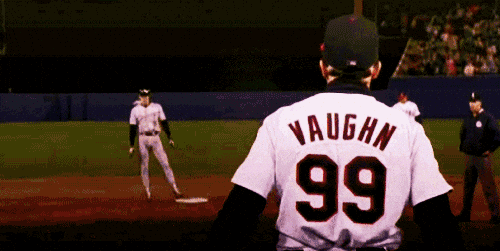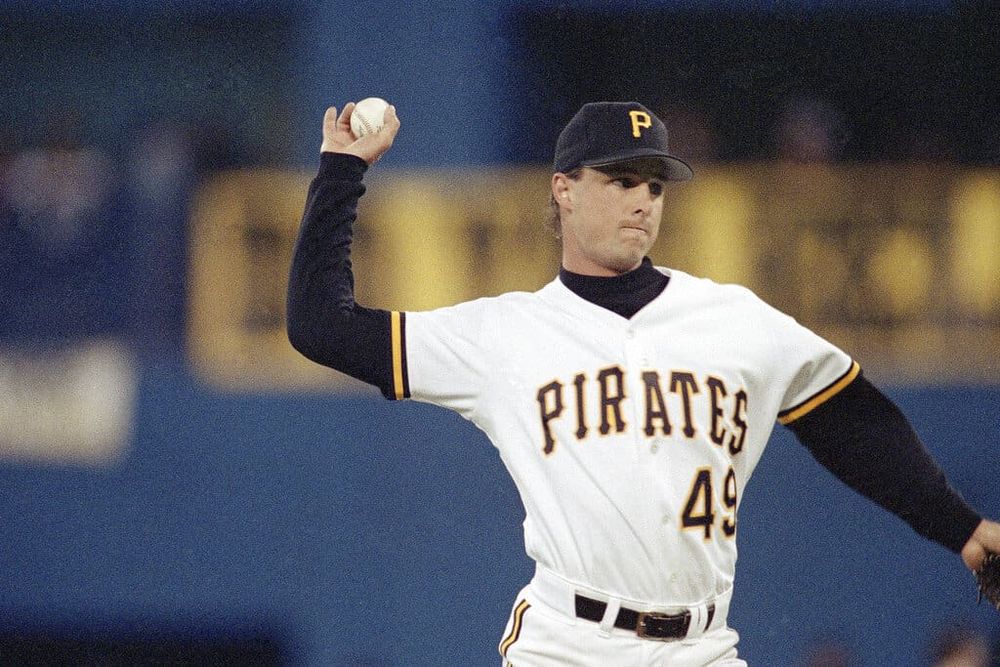Gopher_In_NYC
Well-known member
- Joined
- Apr 19, 2010
- Messages
- 24,627
- Reaction score
- 17,107
- Points
- 113
I know just the man for the job...Not Twins related, but general baseball related:
We need to normalize plunking batters again.
The styling and posing in the box after a HR is getting ridiculous.
Plunk em…hit them in the ass. Treat the game with respect.

No worry there. They got a stadium.Regarding the possibility of a new owner deciding to move the Twins to a different city: are there really any viable options? It seems like most of the areas that are capable of supporting an MLB team already have a club.
I highly doubt that MLB would be keen to return to Oakland.
If this is all true, then how does any MLB franchise other than the top handful who make gobs of TV money possibly survive??OK - let's talk TV. under the old cable bundle, every cable and satellite system that carried BSN paid a rights fee. I know for a fact that my local cable operator was paying $10 a month for every subscriber. and that $10 a month was paid no matter if the subscriber ever watched BSN. So Aunt Tillie, who hasn't watched a baseball game ever, was still paying $10 a month ($120 a year) to BSN.
what a business model - people who don't use your product still have to pay you for it. and still, Diamond Sports (owner of Bally) went bankrupt because of massive debt incurred in the purchase of the RSNs.
Now, the new Twins.TV channel will still be available on cable and satellite systems - but they will not be getting anywhere close to $10/month in fees. If I had to guess, I'd say maybe $3 or $4 a month tops - maybe less. that piece of the pie depends on how many cable systems pick up the channel - AND whether that channel is on basic cable or a higher-priced sports tier. (channels on a sports tier have fewer subscribers and only those subscribers are paying the monthly fee. So Aunt Tillie on basic cable doesn't pay any more.) there will be some ad revenue for the games.
and the streaming package. San Diego was selling 40,000 subscriptions. 40,000 times $100 a year is $4-million.
so IF the Twins can sell 40,000 subscriptions (iffy in the 1st year), you take that $4-million and add in whatever the Twins get in cable and satellite rights fees, plus advertising - MINUS cost of production and cost of a sales force to sell the advertising.
let's be generous and say it adds up to $10-million. Two years ago the Twins got $54-million from BSN. this year (estimate) close to $40-million. that means the Twins are out some $30 to $44-million in local TV revenue compared to what they were getting previously. anyone want to question why the Twins cut the payroll by $30-million?
bottom line - unless a new owner comes in and subsidizes the payroll, the economics do not support any increase in payroll. If you want high-priced free agents, better hope the new owner is willing to lose 10's of millions of $$ a season.
There is revenue sharing.If this is all true, then how does any MLB franchise other than the top handful who make gobs of TV money possibly survive??
The national organization at the top has got to make revenue sharing a thing, if they want more than 5-10 teams?
I think there's little question they'll want him back. With how much Rocco likes to pinch hit, having a guy like him that can play 6 positions pretty well is pretty valuable. He did struggle a lot in the 2nd half though.Thoughts on Castro coming back at almost $7million. He was not that great even though he was an all star and gold glove finalist. I like him but if payroll is staying around $130million and with the salary increases, not sure you can pay him $7million.
I think they can adequately fill his and Farmer’s spikes with Martin/Helmam (who played 7/8 positions for St. Paul), this past season. I’d rather get an upper level lefty or two instead.I think there's little question they'll want him back. With how much Rocco likes to pinch hit, having a guy like him that can play 6 positions pretty well is pretty valuable. He did struggle a lot in the 2nd half though.
Thanks for this post ... but now I'm even more confused.There is revenue sharing.
“Under the new collective bargaining agreement (CBA) negotiated in 2022, each MLB team pools 48 per cent of local revenues with the total amount split equally between all 30 teams. This results in each team taking in 3.3 per cent of the total—an estimated $110 million USD, if not more. Teams also receive a share of national revenues, totalling around $90 million USD per team.”
200 million out of the gate before a $90 ticket, parking spot or $15 beer has been sold. But boo-hoo, the local TV money isn't as much as it once was.
That's $4 for streaming revenue. That does not include ad or sponsor revenue.Thanks for this post ... but now I'm even more confused.
(no worries, this happens easily to me)
I thought I had read $50M down to $4M and so the payroll was doomed?
I think the TV deal was always a convenient excuse for ownership to put money back in their pocket. I don't buy for a second that the Pohlads have been losing money on the Twins. Even taking revenue sharing out of the equation, local TV is typically the third revenue source for teams after game day income (tickets/concessions/parking, etc.) and corporate sponsorships (in-stadium ads, naming rights: Target, Thrivent, Delta, Thomson Reuters, CHS, Budwieser, etc. have all paid or are still paying big bucks to the Twins).Thanks for this post ... but now I'm even more confused.
(no worries, this happens easily to me)
I thought I had read $50M down to $4M and so the payroll was doomed?
Thanks for this post ... but now I'm even more confused.
(no worries, this happens easily to me)
I thought I had read $50M down to $4M and so the payroll was doomed?
It also does not include distribution on cable/satellite. People keep missing that and they will get far more from that (at least for now) than they will from selling streaming subscriptions. I don't think anyone can say how much that will be, but probably 3-4 x as much as the streaming.That's $4 for streaming revenue. That does not include ad or sponsor revenue.
There is revenue sharing, but several teams took big cuts last year, so the shared piece went down too. It's probably fair to say they got around $10 million less in TV $$ last year than 2023. However, they cut payroll $30 million. So no it wasn't fully justified. It's also why they can leave the payroll the same for 2025, even if they're losing another $10-20 million in TV $$.I think the TV deal was always a convenient excuse for ownership to put money back in their pocket. I don't buy for a second that the Pohlads have been losing money on the Twins. Even taking revenue sharing out of the equation, local TV is typically the third revenue source for teams after game day income (tickets/concessions/parking, etc.) and corporate sponsorships (in-stadium ads, naming rights: Target, Thrivent, Delta, Thomson Reuters, CHS, Budwieser, etc. have all paid or are still paying big bucks to the Twins).
There is revenue sharing, but several teams took big cuts last year, so the shared piece went down too. It's probably fair to say they got around $10 million less in TV $$ last year than 2023. However, they cut payroll $30 million. So no it wasn't fully justified. It's also why they can leave the payroll the same for 2025, even if they're losing another $10-20 million in TV $$.
I'm starting to think the "decision to explore the sale of the team" is nothing more than a P.R. stunt.
It's so hard for me to listen to him since I despise him so much. But may have to give it a listen.a recommendation:
John Ourand of Puck News does a podcast twice a week - "The Varsity" - dealing with sports media and sports business.
his most recent episode featured a 35-minute interview with Baseball commissioner Rob Manfred. one of the better interviews I've heard from Manfred.
they covered a lot of topics, including the situation with broadcasting, Diamond Sports, RSN's, etc.
Manfred said he would like to see the owners look at a more national approach to broadcasting, where, as he said, "anyone can watch any game they want to." He admitted that teams leaving an RSN to run its games through MLB will see a drop in revenue, which he called "a trough." he said he expects those teams to deal with lower revenues for 3 to 5 years, and then he hopes to see revenues begin to increase to the point where local revenue will match what teams were getting from RSN's. Manfred also said that he expects more teams will run their games through MLB in the next few years.
the interview covered a lot of other topics, including automated strike zones (MLB will test in Spring Training next year), other possible rule changes, etc. There was some joking about the All-Star game going back to players wearing their own team uniforms instead of the "AL" and "NL" uniforms.
well worth listening to.
The passing of Luis Tiant it was mentioned in the obit, that he threw a 163 pitch CG in G4 of the 1975 World Series against the Big Red Machine. The Red Sox beat Cincinnati 5-4 that night at Riverfront Stadium.10000 days ago (June 5, 1997), Tim Wakefield throws 170 pitches in a 2-1 Red Sox win over Milwaukee.
Most pitches in one game, 1990s:
Tim Wakefield, 1993: 172
Tim Wakefield, 1997: 170
Tim Wakefield, 1996: 166
David Cone, 1992: 166

Old Baseball News (@oldbaseballnews.bsky.social)
10000 days ago (June 5, 1997), Tim Wakefield throws 170 pitches in a 2-1 Red Sox win over Milwaukee. Most pitches in one game, 1990s: Tim Wakefield, 1993: 172 Tim Wakefield, 1997: 170 Tim Wakefield, 1996: 166 David Cone, 1992: 166bsky.app
The conversion to the metric system makes his hitters look better.David Popkins was not out of work long.
just hired as the new lead hitting coach for the Toronto Blue Jays.
No one in the world could concoct an event of such comedic conviviality - not even meYankees manager Billy Martin got in a fight with a marshmallow salesman at the bar at Chez Colette at Hotel Sofitel in Bloomington on this date in 1979.
